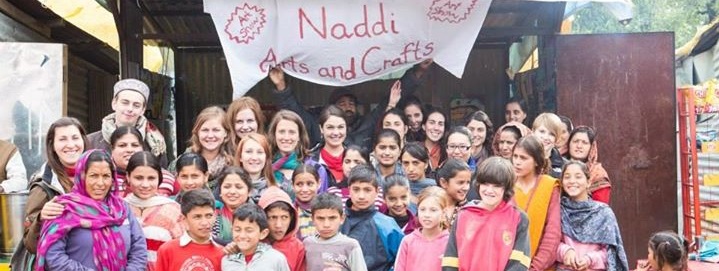My name is Jeanne, I am 19 years old and I study Agriculture in an engineering school in France. I arrived in India the 1st of June after the longest flight ever. I met Gautier at the airport in Delhi, he is also French and in Harike as the SWASH manager. I am on the organic farming project.
My first impression after my first step in India was: the heat. The exit of the airport was an oven and it was only the beginning of our travel, we had to go to our hotel with all our luggage, what a good start! We were assaulted by the taxi drivers, the auto rickshaw drivers, the hotel managers and many other people that wanted to sell us something. After an hour or an hour and a half of metro, walk and getting lost many times we finally reached our hotel. There another nightmare was starting, understanding the formalities of the hotel and trying to not be over charged, even if both Gautier and I were not really fluent in English. We can say that it was an interesting exchange!
Despite all that I began to like Delhi, all the different smells, the trash, there you can smell incense and at the same time the smell of the street food. Here and there, there are street dogs, cows, squirrels, pigeons or even a zebu pulling a cart. But the most significant maybe, are the people. So many people who are doing so many different things, food street vendor everywhere (momos freely, corn, samosas, ice-cream, juice...), barber, street ironing service, ear cleaner, trash picker, beggar child, woman, old person no one is spared to this condition, and this day and night. One other thing that you have to get used to as a foreigner is people staring at you as if you had a problem on your face! As well as sometimes people just do a little walk with you to ask you where do you come from? What are you doing in India? Did you see the Taj ? Or you have to go there it is beautiful and then go back among the crowd. For me that is Delhi and I love it.
Despite all that I began to like Delhi, all the different smells, the trash, there you can smell incense and at the same time the smell of the street food. Here and there, there are street dogs, cows, squirrels, pigeons or even a zebu pulling a cart. But the most significant maybe, are the people. So many people who are doing so many different things, food street vendor everywhere (momos freely, corn, samosas, ice-cream, juice...), barber, street ironing service, ear cleaner, trash picker, beggar child, woman, old person no one is spared to this condition, and this day and night. One other thing that you have to get used to as a foreigner is people staring at you as if you had a problem on your face! As well as sometimes people just do a little walk with you to ask you where do you come from? What are you doing in India? Did you see the Taj ? Or you have to go there it is beautiful and then go back among the crowd. For me that is Delhi and I love it.
 |
| Playing cards in the train! |
The next days, I discovered Harike, a “village”! 8ooo inhabitants, many shops, dhabas, chemists, tailors, boat makers, 4 different schools, at least 4 Sikh temples, one Hindu temple, one post office (never open), many fruits and vegetables stalls and even more. I was very surprised to see that. It was not really what I had imagined. I had the same impression when I discovered the intern’s house, I was expecting more privacy, more comfort, more everything but I finally like this place. After a week or two you feel at home and find your own way to live here. Then it was time to meet the communities and our neighbors, the first contact was strange and I didn’t feel comfortable to be welcomed like we were. But now it has become normal to have chai or cold coffee everywhere, even at the fixed price store they give you a soda. The Punjabis are very friendly and welcoming when you take a step toward them to try to discover them. I am learning a lot about the religion, the way of living, their point of view about their country, about ours (Punjabi are completely crazy about Canada and Australia!), the food, the history of the country and many other things.
Before I left for India every one told me, “You will come back changed!” I don’t know if it is true but the only thing that I know is that I will come back with a nose full of smells, eyes full of colors, ears full of horns and Punjabi music and finally a head full of memories.
Jeanne Tardieau - France
Organic Farming Project Manager in Harike










